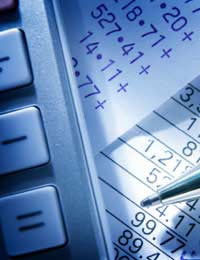Recognising Debts You Can and Can't Afford

Recognising debts you can and can’t afford would seem a simple task; income versus expenditure. Actually recognising debts that you can and can’t afford means assessing income and debt repayments now and in the future.
Assessing Affordable Debts
There are debts that are repayable without much inconvenience and it should be easy to recognise if they can be afforded. These debts can take the form of new clothes or food shopping paid by a credit card. Other more significant debts are not so easily assessed. These debts can take the form of buying a car using a loan or finance arrangement, or even buying a property. Large debts using credit require careful assessment to gauge whether or not they are affordable.Planning a Financially Safe Future
Financial budgets are vital when it comes to future and present finances. It’s easy to allow debts to continue for years but it definitely doesn’t make financial sense. Setting out a financial budget will help to assess timescales when it comes to debt. A financial budget or plan will help to break down how much purchases will actually cost in total when bought using credit. Present income versus expenditure will be part of the plan but debts that are still being paid in five years time should also be part of the picture.Can You Afford Large Debts?
Items purchased using credit, such as a new car, are major debts. Some people will simply go ahead and take on this debt without giving the future much thought. Repaying a large debt over many years will drain money in terms of interest payments; the longer the repayment schedule, the more interest. A good rule of thumb for high price purchase items should be the length of repayment. If an item such as a car cannot be paid for in five years then this debt is really not affordable.Good Debts versus Bad Debts
Not all debt is bad and some debts will actually pay off in the long run. A new car decreases in value as soon as it leaves the showroom so isn’t really a good debt. A house can be seen as a good debt due to the fact that home owners are likely to make a profit when it comes to selling. Buying a home is also generally seen as the smarter option to renting; renting will not provide any financial return. Good debts should be taken into consideration when it comes to assessing debts that can and can’t be afforded.Assessing Good versus Bad Debts
It’s useful to know what are actually classed as good and bad debts. Good and bad debts will include –- Property purchases such as homes (good debt)
- Renting property for long periods (bad debt)
- New vehicle purchases (bad debt)
- Credit cards (bad debt)
- Student loans, investing for the future (good debt)
- High interest loans such as payday loans (bad debt)
- Household purchases such as televisions using financing over many years (bad debt)
Can a Mortgage Debt Be Afforded?
Property is one of life’s major purchases and although this ranks in the good debt category it is still a large debt. Most people have no other option than to buy their home using loans and financing. There is a guiding rule that may help as to whether or not a mortgage is an affordable debt. Mortgage payments should not exceed 30% of take home pay per month; this is after taxes have been paid. This sounds easy enough to calculate but mortgage payments can last for decades, and decreases in future income should be a factor.Building a Financial Nest Egg into a Budget
Even when purchasing good debts such as a mortgage there are variables. Financial instability can occur at anytime without notice. Interest rates can increase as can mortgage payments. This is why it is important to build up savings in case income does decrease for any reason. Think of these savings as a safety net, something that can be used to weather any financial storm. Assessing future debts and savings will determine whether a debt can or can’t be afforded at the present time.A financial budget is the best way to assess whether or not certain debts can be afforded. The budget should also figure in future purchases that are unavoidable or simply make good financial sense. This is a long term financial forecast. Although there may be some unforeseen financial bumps the budget should be a good guideline to recognising debts you can and can’t afford.
Business Energy With a Difference
If you are looking for business energy or need advanced solutions like remote energy monitoring, new supplies, downgrading or upgrading capacity, have a no obligation chat with Purely Energy.
To find our more get in touch here. or call 0161 521 3400.








